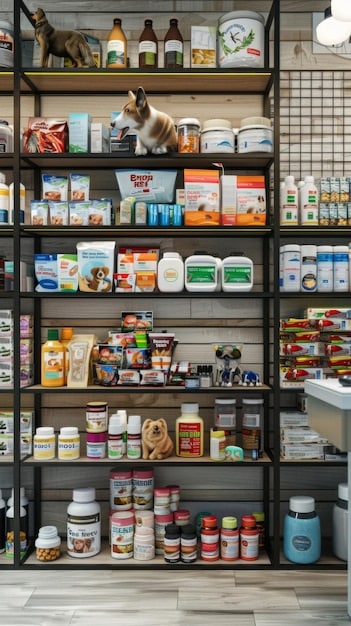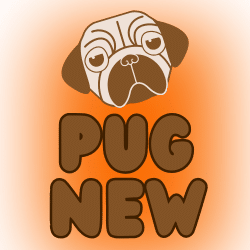Expert Predictions: The Future of Pet Nutrition and Wellness

Anúncios
Expert predictions indicate a shift towards personalized pet nutrition, advanced supplements, and technology-driven wellness solutions, focusing on preventative care and improved quality of life for pets.
The pet industry is constantly evolving, and staying ahead of the curve is essential for pet owners and businesses alike. What does the future hold for our furry companions? This article explores expert predictions in pet nutrition and wellness, unveiling the next big trends to watch.
Anúncios
Personalized Pet Nutrition: Tailored Diets for Optimal Health
One of the most significant trends in pet nutrition is the movement toward personalization. No longer are generic kibble blends considered the gold standard. Instead, pet owners are seeking diets tailored to their pet’s specific needs, life stage, breed, and health conditions.
Personalized nutrition acknowledges that each pet is unique and has distinct dietary requirements. This approach emphasizes understanding a pet’s individual health profile and crafting a diet that supports their well-being. But how does this work in practice?
Anúncios
DNA-Based Diet Plans
Advancements in genetic testing are making DNA-based diet plans a reality. By analyzing a pet’s DNA, nutritionists can identify potential sensitivities, predispositions to certain conditions, and optimal nutrient absorption levels. This information is then used to create a customized diet plan.
Subscription Meal Services
Subscription meal services are becoming increasingly popular, offering freshly prepared, pre-portioned meals delivered directly to your doorstep. These services often collaborate with veterinarians and nutritionists to ensure the meals meet specific dietary needs.

- Customized Recipes: Tailored meal plans based on breed, age, weight, activity, and health conditions.
- Fresh Ingredients: Use of high-quality, human-grade ingredients.
- Convenient Delivery: Pre-portioned meals delivered regularly, saving time and effort.
- Nutritional Support: Access to veterinary nutritionists for guidance and adjustments.
The shift toward personalized nutrition ensures that pets receive precisely what they need to thrive, leading to improved health outcomes and a better quality of life.
The Rise of Functional Foods and Supplements
Beyond basic nutrition, functional foods and supplements are gaining traction in the pet wellness space. These products are designed to offer specific health benefits, such as improved digestion, joint support, and cognitive enhancement.
Functional foods contain bioactive compounds that provide health benefits beyond basic nutrition. Supplements, on the other hand, are concentrated sources of nutrients or other substances that complement a pet’s diet. What are some key players?
Probiotics for Gut Health
Probiotics are beneficial bacteria that support digestive health and boost the immune system. They can be found in specially formulated pet foods, chews, and supplements.
Omega-3 Fatty Acids for Joint and Skin Health
Omega-3 fatty acids, particularly EPA and DHA, are known for their anti-inflammatory properties. They are commonly used to support joint health, reduce skin irritation, and promote a healthy coat.

- Joint Support: Glucosamine, chondroitin, and MSM.
- Skin and Coat Health: Omega-3 fatty acids, biotin, and vitamin E.
- Digestive Health: Probiotics, prebiotics, and digestive enzymes.
- Anxiety Relief: L-theanine, chamomile, and CBD.
As pet owners become more proactive about their pets’ health, the demand for functional foods and supplements will continue to grow, driving innovation and expanding options in the market.
Technology Integration: Wearables and Smart Feeders
Technology is transforming pet care in various ways, from wearable devices that track activity levels to smart feeders that manage meal portions. These innovations provide pet owners with valuable insights into their pet’s health and behavior, facilitating proactive care.
Wearable technology offers a continuous stream of data about a pet’s activity, sleep patterns, and vital signs. Smart feeders, on the other hand, automate the feeding process, ensuring pets receive the correct amount of food at the right times.
Activity Trackers and GPS Collars
Activity trackers monitor a pet’s daily movements, providing insights into their exercise levels and sleep quality. GPS collars offer location tracking, providing peace of mind for pet owners concerned about their pet’s safety.
Smart Feeders and Water Fountains
Smart feeders allow pet owners to schedule meals, control portion sizes, and monitor their pet’s eating habits remotely. Smart water fountains ensure pets always have access to fresh, clean water.
These technological advancements empower pet owners to monitor their pets’ health remotely, receive alerts for potential issues, and make informed decisions about their care.
Preventative Healthcare: Proactive Wellness Strategies
Preventative healthcare is becoming increasingly important in the pet world. Pet owners are shifting from reactive treatment to proactive wellness strategies to keep their pets healthy and happy for longer.
Preventative care focuses on identifying and addressing potential health risks before they escalate. This includes regular veterinary check-ups, vaccinations, parasite control, and early disease detection. But how are these strategies evolving?
Regular Veterinary Check-ups
Routine check-ups allow veterinarians to monitor a pet’s overall health, detect early signs of illness, and provide preventative treatments.
Vaccinations and Parasite Control
Vaccinations protect pets from infectious diseases, while parasite control prevents infestations of fleas, ticks, heartworms, and other parasites.
By prioritizing preventative care, pet owners can minimize the risk of serious health problems, reduce healthcare costs in the long run, and enhance their pets’ quality of life.
Focus on Mental Wellness and Enrichment
Mental wellness is finally being recognized as a critical component of overall pet health. Pet owners are increasingly aware of the importance of providing mental stimulation and enrichment to prevent boredom, anxiety, and behavioral issues.
Mental enrichment involves providing pets with opportunities to engage in stimulating activities that challenge their minds and satisfy their natural instincts. This can include puzzle toys, training exercises, and interactive play.
Puzzle Toys and Interactive Games
Puzzle toys require pets to problem-solve in order to access treats or food, providing mental stimulation and keeping them entertained. Interactive games, such as fetch or tug-of-war, encourage physical activity and strengthen the bond between pets and their owners.
Training and Socialization
Training provides pets with mental challenges and structure, while socialization exposes them to new experiences and helps them develop confidence. Early socialization is particularly important for puppies and kittens.
By prioritizing mental wellness and enrichment, pet owners can foster happier, more well-adjusted pets, reducing the likelihood of behavioral problems and improving their overall quality of life.
The Human-Animal Bond: Strengthening Connections
The human-animal bond is a mutually beneficial relationship between people and animals that has a profound impact on both their physical and emotional well-being. This bond is being increasingly recognized and celebrated in the pet industry.
A strong human-animal bond can reduce stress, lower blood pressure, and increase feelings of happiness and companionship. As pet owners seek to strengthen this bond, they are turning to activities that foster connection and communication.
Pet-Friendly Activities and Travel
Pet-friendly activities, such as hiking, camping, and visiting dog parks, provide opportunities for pets and their owners to spend quality time together. Pet-friendly travel is also on the rise, with more hotels, restaurants, and attractions welcoming furry companions.
Therapy Animals and Emotional Support
Therapy animals provide comfort and support to people in hospitals, nursing homes, and schools. Emotional support animals offer companionship and alleviate symptoms of anxiety, depression, and other mental health conditions.
As society continues to recognize the importance of the human-animal bond, we can expect to see even more initiatives that celebrate and support the unique relationship between people and their pets.
| Key Point | Brief Description |
|---|---|
| 🧬 Personalized Nutrition | Diets tailored to individual pets’ needs based on DNA and health profiles. |
| 💊 Functional Foods | Foods and supplements providing specific health benefits like joint support. |
| 🐾 Wearable Tech | Devices tracking activity, sleep, and vital signs for proactive care. |
| 🧠 Mental Wellness | Focus on enrichment to prevent behavioral issues and enhance well-being. |
FAQ: Pet Nutrition and Wellness
▼
Personalized pet nutrition involves tailoring a pet’s diet to their specific needs, considering factors like breed, age, health conditions, and activity level. This approach ensures they receive the optimal balance of nutrients for their individual requirements.
▼
Functional foods for pets are those that offer health benefits beyond basic nutrition. They contain bioactive compounds that can support various aspects of health, such as digestion, joint function, and immune system strength.
▼
Wearable technology, like activity trackers and GPS collars, can provide valuable insights into your pet’s activity levels, sleep patterns, and location. This information can help you monitor their health and ensure their safety, promoting proactive care.
▼
Mental enrichment is crucial for preventing boredom, anxiety, and behavioral issues in pets. Providing stimulating activities and opportunities to engage their minds can improve their overall well-being and quality of life, leading to happier pets.
▼
Strengthening the human-animal bond involves engaging in activities that foster connection and communication with your pet. This can include pet-friendly outings, interactive play, training sessions, and simply spending quality time together, showing affection and care.
Conclusion
The future of pet nutrition and wellness is bright, with advancements in personalized nutrition, functional foods, technology integration, preventative healthcare, mental wellness, and the recognition of the human-animal bond. By staying informed and embracing these trends, pet owners can provide their furry companions with the best possible care, ensuring they live longer, healthier, and happier lives.






